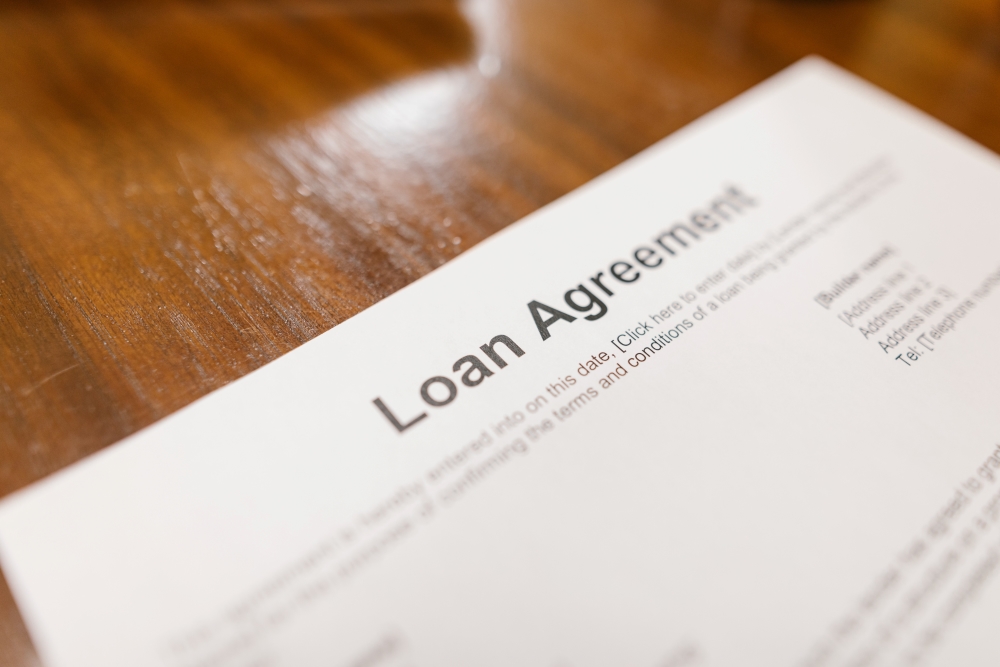Can I strike a company off that still owes a Bounce Back Loan?
Bounce back loans were made available when many businesses required support. For some, the loan allowed the business to continue. But for others, the business is no longer making money. Many directors have been advised to strike off their companies. In this article, we’re answering the question, can I strike off a company that still owes a bounce-back loan?
What is a Bounce Back Loan?
The government introduced the Bounce Back Loan Scheme in March 2020. The aim was to enable small and medium-sized businesses to access finance more quickly during the first wave of the COVID-19 pandemic.
Up until 31st March 2021, businesses could apply to borrow between £2,000 and up to 25% of their turnover (capped at £50,000).
Almost 30 lenders participated in the scheme, including many of the high street banks. Since it began, over two million businesses have taken advantage of a Bounce Back Loan.
100% guaranteed by the government, there are no fees or interest to pay for the first 12 months. After this, the interest rate is 2.5% per year.
Whilst they were seen as a lifeline for businesses at the beginning of the pandemic, they’ve increasingly become another frustrating monthly outgoing to manage. For businesses that are not in the best financial position, unpaid bounce-back loans are another debt to add to the list.
Can I close my company with a bounce-back loan?
If your business is insolvent, and you cannot afford to pay back your bounce back loan you will need to use a Creditors Voluntary Liquidation (CVL). This is a much better option than waiting for a Compulsory Liquidation.
However, if you are asking whether you can strike off a company that still owes a bounce-back loan, the answer is quite different.
The short answer is no, you cannot strike a company off that still owes a bounce-back loan. Furthermore, trying to strike off a company with a bounce-back loan could get you into serious trouble with the insolvency service. Attempting to strike off your company with a bounce-back loan could lead to you being disqualified from being a company director and being made personally liable for some or all of the company’s debts and in some cases, directors have been sent to prison for it. We can provide support if you’re wondering, can I liquidate my company and start again?
To strike a company off the register at Companies House, it must be debt free and meet the following criteria:
- No trading or selling of stocks has been conducted in the last three months
- It hasn’t changed its name in the previous three months
- There are no threats of liquidation and no repayment agreements with any company creditors
- NOT be attempting to strike off a company with an outstanding Bounce Back Loan
- Any company can be closed, but this must be completed legally whilst adhering to all the statutory responsibilities.
Bounce back loans and personal guarantees
Although they didn’t require a personal guarantee, a Bounce Back Loan is viewed legally as any other debt would be. Therefore, if you attempt to strike off a company with a Bounce Back Loan, it’s likely to be objected to by the finance provider to whom the debt is owed. As a result, you’ll receive a letter known as an ‘Objection to Company Strike Off Notice’.
HMRC is keen to keep an eye on directors trying to dissolve companies to avoid paying their tax liabilities, so they collaborate closely with Companies House to prevent this from happening.
Since the pandemic, the government announced new legislation that allows the insolvency service ‘to target company directors who dissolve their businesses and leave staff or taxpayers out of pocket.’
These rules are part of the Ratings (Coronavirus) and Directors Disqualification (Dissolved Companies) Bill. These new rules allow the Insolvency Service to chase directors who have inappropriately struck companies off that have benefited from the Bounce Back Loan Scheme and Coronavirus Business Interruption Loan Scheme (CBILS).
In the past, some directors have used the strike-off loophole to avoid being investigated by a licensed insolvency practitioner. Striking off a company is cheap and simple to do, but it’s not always the most appropriate option.
Even if a company has been struck off the Companies House register, any creditor could reinstate the company for up to 20 years in the future.
There are many directors who have used this loophole, and their company has been dissolved at Companies House, but this will not be the end. The bank can’t claim its guarantee from the government unless a company has gone through a formal insolvency process. The bank will have to reinstate the dissolved company and continue to chase the director for the outstanding debt. In addition, any other company creditors, such as HMRC, will also be made aware, and in turn, they will restart their recovery and enforcement action.
If you are being advised to strike your company off with a bounce-back loan that you haven’t paid back, you need to consider getting a new advisor. This could land you in seriously hot water, and you could be made personally liable for some or all of the company’s debts. Find out what happens if you don’t pay your bounce-back loan.
How to correctly close your company if you have a Bounce Back Loan
If your company can no longer afford to pay its debts on time, including the bounce-back loan, voluntary liquidation is the correct legal option to take if you wish to close your company. In this situation, a licensed insolvency practitioner will bring a formal end to the company in a structured and legal manner. They will also inform and deal with all your company’s creditors, including the bounce-back loan.
If you’re worried that your business doesn’t have the necessary funds to pay for voluntary liquidation and you’ve been registered on the company payroll for more than two years, you may also be able to apply for a director redundancy claim.
The average director redundancy claim is £9,000. This gives you more than enough to pay for the cost of liquidation and leaves you with some money in your pocket. Directors’ redundancy payments vary depending on many factors, such as age, salary and length of service. Read our blog on: will you have to pay your bounce back loan if you liquidate?
What if I’ve already used a strike-off to close my company with a bounce-back loan?
If you have already chosen this method of closing down your limited company, then you will likely have to face the consequences. You will likely end up with your company being reinstated by the bank and then forced to repay the loan. This is not a good situation to be in. We recommend using a formal liquidation process to give you complete peace of mind when closing a company with a bounce-back loan.
So, can I strike a company off with a Bounce Back Loan?
You definitely can’t do that. Your only option would be to use a liquidation method or pay off the bounce-back loan and then close the company.
If you’re considering striking off your company but have a Bounce Back Loan in place, contact us today to discuss your options for company closure and rescue. We offer honest and confidential advice to protect you as the director. Read our blog on strike-off vs liquidation.
Strike off FAQs
Are there any consequences for not repaying a Bounce Back Loan?
Providing that you have acted responsibly with your bounce-back loan, applied for the right amount and spent it for the benefit of the business, there should be no consequences. However, if you are found to have spent it on other things, not for the benefit of your company, applied for it when your company wasn’t entitled or applied for too much, you may face consequences.
These consequences could include being personally liable for paying the bounce-back loan funds back. This can cause more stress for you. If you have committed bounce-back loan fraud, seek advice as soon as possible.
Can striking off a company eliminate the obligation to repay a Bounce Back Loan?
No, you cannot strike off a company with a bounce-back loan. When you attempt to strike off the company, it will be advertised in the gazette. The bank who lent you the loan will be informed, and they will object, meaning you will have to pay the loan back anyway.
Do not try to strike off a company with a bounce-back loan, this is illegal, and people have been sent to prison for it.
What are the risks of closing a company with a bounce-back loan?
You can only use a liquidation procedure to close a company with a bounce-back loan that has not been repaid. If no issues are detected, there should be no risk. If you have acted irresponsibly, the courts will decide on a suitable consequence for you.
Do you Want to Close a Business With Debts?
Then contact the team at 1st Business Rescue! We’ll assess your financial situation and make suggestions on how to close your business appropriately.
I'm Chris Worden, Managing Director at 1st Business Rescue. With over 7 years of experience, I help UK directors navigate the complex world of UK corporate insolvency. We offer free and independent advice to UK directors and advise them about what options may be available to them if their limited company starts to struggle.
I am passionate about helping other directors overcome their business challenges and get back on their feet, as I was once in the same position as them. I had a business that became insolvent, and the advice out there was confusing and overwhelming. I am here to provide honest and valuable advice to UK directors.
I am proud to say that we are one of the only 5-star corporate insolvency companies on Trustpilot with hundreds of 5-star reviews, and we publish videos weekly on our YouTube channel. Our channel is designed to educate UK directors about insolvency and debt advice. Check it out here:
Please get in touch and we’ll come back to you
without delay.
Call 0808 506 2246
Text 07717 738 167
Complete a Free Online Enquiry





